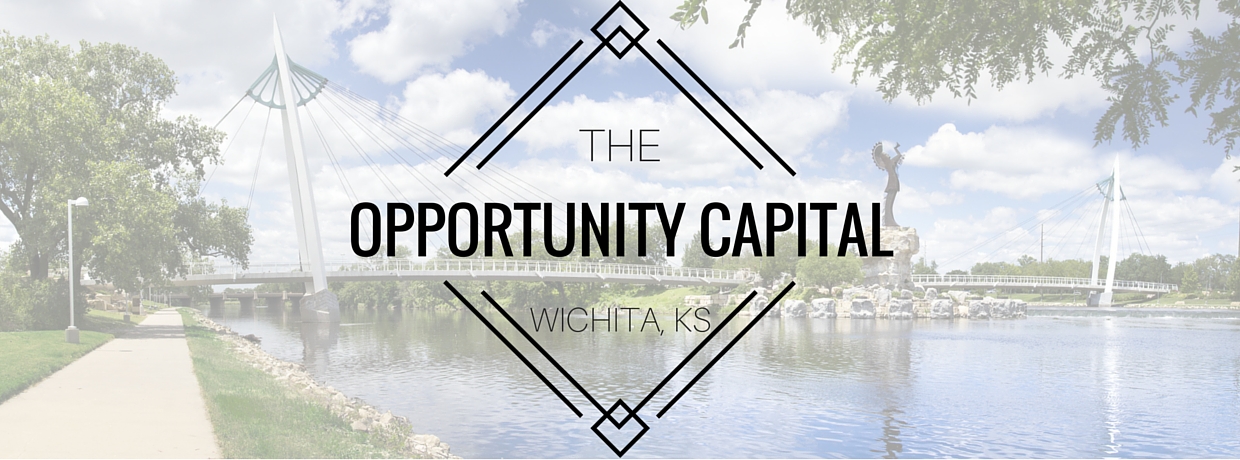Opportunity Capital: The One Billion Dollar Challenge
What exactly would it take to add a huge number like one billion to our local economy? To have that impact in a year, each of the 300,000 workers in the Wichita MSA would have to increase their productivity by about $3,300 – or a much more manageable $275 a month. Boosting our local economy isn’t someone else’s job, it’s our responsibility. There’s a huge amount we can do as individuals to make this happen. I wrote recently about Wichita becoming the Opportunity Capital – a place where we will make more and better opportunities more accessible here than anywhere else (also the importance of improving perception). To do that, we will have to increase the amount and productivity of the resources we have in our community.
Resources are about more than money and more than the numbers on a balance sheet. What’s more important is how productive our resources are, and how we use them to solve problems and create value for people. There are a two key ways to increase the productivity of resources in our community: (1) create or acquire new resources and (2) increase the productivity of existing resources.
Creating or acquiring assets can take many forms. Acquiring traditional resources is fairly straightforward; for example, adding infrastructure such as fiber or a new library or persuading an employer to relocate to Wichita. But creating intangible assets is where the greatest potential is: the idea behind a new business, developing a new technology, creating an innovation to solve a problem or developing a new knowledge base or skillset.
There are a number of ways to improve productivity of existing resources. For example, improving innovation, utilization, and the speed at which a resource can move in a community. We can all be innovators because we all have ideas for new ways to solve existing problems by using existing resources in new ways. Many resources can become more productive with little or no additional resources by increasing their usage through raising awareness or lowering barriers to engagement.
Some resources can benefit more people the faster they are used – especially with information and financial based resources. Think about investment funds – a one million dollar investment in a business creates a technology, creates jobs, creates business for suppliers, creates more jobs, creates consumer spending, creates more jobs and on and on. For financial and information resources, a critical part of speed is networking. Think of a human network like a data network. The shorter the distance (i.e. the greater the number of overall connections) and the stronger the connection, the more rapidly ideas and resources can be productively used in a community.
So, how will you add $3,300 to our local economy this year? Here are a few things that only you can do right where you’re at:
- Reach out to talented peers, family members, etc. and invite them to consider visiting or relocating to Wichita (tourism to events like RiverFest create a one billion dollar impact on our local economy)
- Get some personal, professional or leadership development (come to the Kansas YP Summit in Wichita April 22, and check out the YPW calendar for numerous upcoming development opportunities and our partners like KLC, and Level Up with DevICT and Women Who Code)
- Build a high bandwidth network – connect around common passions and interests – check out upcoming events like the March Mingle and network with our peer organizations like ICT UP at their events and programming).
- Help others build their networks through introductions (Bring them to the March Mingle!)
- Lend your network to good causes and
- Share your great ideas and promote others great ideas (check out WichiTalks)
- Identify a problem and become part of an innovative solution (check out MakeICT and Dev ICT)
- Support local businesses (there are many ways, but check out 1Million Cups each Wednesday)
Read the previous posts in this series by 2016 Chair Sam Foreman below:
Wichita Rising: The Opportunity Capital
Help Make Wichita the Opportunity Capital



